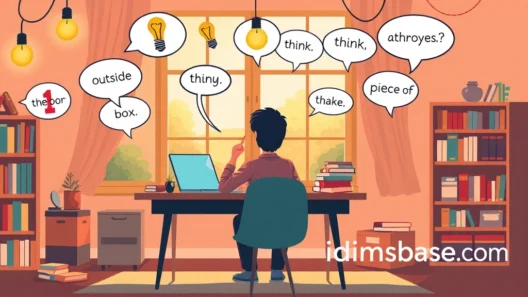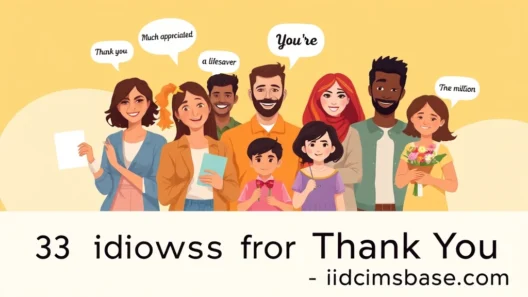Have you ever felt like you're walking through a fog, unsure of what's ahead? Or maybe you've been in a situation where the future felt as clear as mud? Well, you're not alone! Life is full of twists, turns, and moments where certainty is as rare as a unicorn. And guess what? English, with its rich tapestry of expressions, has some truly delightful ways to describe these very feelings of uncertainty.
Idioms are like the secret sauce of language – they add flavor, depth, and a touch of mystery. They let us communicate complex ideas in a colourful, often humorous way. So, if you're ready to sprinkle some linguistic magic into your conversations and writing, let's dive into the fascinating world of idioms for uncertainty!
Navigating the Unknown: Top Idioms for Uncertainty
It’s exciting to explore how different phrases capture that feeling of being in limbo, isn't it? From the slightly nervous to the utterly bewildered, these idioms have got you covered.
1. Up in the Air
This is a classic, and for good reason! When something is "up in the air," it means a decision hasn't been made yet, or the outcome is still uncertain. Imagine a balloon floating freely – it could land anywhere!
- Meaning: Undecided; unresolved; not yet settled.
- Example: "Our travel plans for the summer are still up in the air because we haven't decided on a destination."
- Why it's great: It's visual and easy to understand. Plus, it implies a sense of lightness, almost as if the situation isn't weighing too heavily just yet.
2. Play It by Ear
Ever been told to "play it by ear"? This idiom comes from music, where musicians sometimes improvise without sheet music. It means to decide how to deal with a situation as it develops, rather than planning it in advance.
- Meaning: To improvise; to decide on a course of action as events unfold.
- Example: "I'm not sure what time I'll finish work, so let's just play it by ear for dinner plans."
- Why it's great: It suggests flexibility and an ability to adapt, which is super useful when things are uncertain!
3. On the Fence

Picture someone literally sitting on a fence – they haven't decided which side to jump down on. This idiom perfectly describes indecision between two choices.
- Meaning: Undecided; hesitant between two options.
- Example: "I'm still on the fence about whether to accept the job offer or pursue further education."
- Why it's great: It paints a clear picture of someone stuck in the middle, unable to commit.
4. In the Balance
When something is "in the balance," it means its future or outcome is uncertain and could go either way. Think of a scale with two possibilities hanging precariously.
- Meaning: At a critical stage where the outcome is uncertain; precarious.
- Example: "After the close election, the future of the new policy hung in the balance."
- Why it's great: This idiom conveys a sense of gravity and importance, suggesting high stakes.
5. Gray Area
Life isn't always black and white, is it? A "gray area" refers to a situation that isn't clearly defined, where rules aren't absolute, or where there's no clear right or wrong answer.
- Meaning: A situation that is not clearly defined or where the rules are not clear.
- Example: "Whether that marketing tactic is ethical or not is a bit of a gray area."
- Why it's great: It acknowledges complexity and the nuances of real-world situations.

6. Keep Your Fingers Crossed
While not strictly about being uncertain, this idiom is all about hoping for a positive outcome when things are indeed uncertain. It's a gesture of superstition and hope.
- Meaning: To hope for good luck or a positive outcome.
- Example: "The doctor is running some tests, so we're all just keeping our fingers crossed for good news."
- Why it's great: It's a universal sign of hope and empathy when faced with the unknown.
7. A Shot in the Dark
Imagine trying to hit a target when you can't see it – you're just guessing! A "shot in the dark" is an attempt or guess made without much information or any certainty of success.
- Meaning: A wild guess; an attempt made with no knowledge or information.
- Example: "I didn't know the answer, so I just took a shot in the dark on the last question of the quiz."
- Why it's great: It perfectly captures the feeling of making a decision with very little to go on.
Comparing Idioms: A Quick Look
Sometimes, idioms can seem similar, but they carry subtle differences in nuance. Let's look at a few that often describe uncertainty:

| Idiom | Primary Nuance | Context Example |
|---|---|---|
| Up in the Air | Undecided, outcome unknown (often temporary) | "The project's budget is still up in the air." |
| In the Balance | Critical, high stakes, outcome precarious | "His career hangs in the balance after the scandal." |
| On the Fence | Personal indecision between two choices | "She's on the fence about buying a car or using public transport." |
| Play It by Ear | Adaptability, no fixed plan | "We don't have a strict itinerary; we'll just play it by ear." |
| Gray Area | Ambiguity, lack of clear rules/definitions | "The new privacy laws have created a lot of gray areas for tech companies." |
FAQ: Your Questions About Idioms for Uncertainty Answered!
You've got questions, and we've got answers! Let's clear up some common curiosities about these fantastic phrases.
Q1: Why are idioms so common in English?
A1: Oh, that's a brilliant question! Idioms are super common because they add so much richness and color to the language. They allow us to express complex ideas or emotions in a concise and often memorable way. Think of them as cultural shortcuts – everyone who speaks the language understands the underlying meaning, even if it's not literal. They make conversations more engaging and less robotic, adding a touch of personality and flair!
Q2: Can using idioms make me sound more fluent?
A2: Absolutely! Using idioms naturally and correctly is often a sign of advanced fluency. It shows that you not only understand the literal meaning of words but also the cultural nuances and common expressions of the language. It helps you connect more authentically with native speakers, as you're speaking "their language" in a deeper sense. Just be sure to use them in the right context – otherwise, they might create more confusion than clarity!
Q3: Are these idioms appropriate for formal writing?
A3: That's a great point to consider! While idioms are fantastic for everyday conversation and informal writing, many of them, like "play it by ear" or "keep your fingers crossed," are generally considered too informal for highly formal academic papers, legal documents, or very professional business reports. However, some, like "up in the air" or "gray area," might occasionally sneak into slightly more formal contexts, especially in business communication that aims for a conversational tone. Always consider your audience and the purpose of your writing! When in doubt, it's safer to stick to more direct, literal language in formal settings.
Q4: How can I remember all these idioms?
A4: That's the million-dollar question, isn't it? The best way to remember idioms is through consistent exposure and active practice. Don't just read them; try to use them!
- Context is King: Notice how they're used in movies, books, and conversations.
- Create Your Own Examples: Try writing a few sentences using each idiom.
- Visualize: Many idioms create a mental image (like "on the fence"), which can help them stick.
- Practice with Friends: Use them in your daily chats. The more you use them, the more natural they'll feel!
Q5: Do other languages have similar idioms for uncertainty?
A5: Oh, absolutely! Every language has its own unique ways of expressing uncertainty, and it's fascinating to see the cultural differences and similarities. For instance, in some languages, you might talk about things being "in the clouds" or "on thin ice." While the exact phrases differ, the human experience of uncertainty is universal, and languages beautifully reflect that. Exploring these cross-cultural idioms is a fantastic way to deepen your understanding of both language and culture!
Key Takeaways
- Idioms add flavor: They make your English sound more natural, expressive, and engaging.
- Uncertainty is universal: There are many ways to describe being unsure, from undecided plans ("up in the air") to hoping for the best ("keep your fingers crossed").
- Context matters: Choose the right idiom for the right situation and level of formality.
- Practice makes perfect: The more you use these idioms, the more comfortable and confident you'll become!
So, the next time you find yourself in a situation that's a little fuzzy around the edges, don't just say "I don't know." Spice it up! Tell someone your plans are "up in the air," or that you're going to "play it by ear." You'll not only sound more fluent but also more vibrant and interesting! Which of these idioms are you excited to start using today? Share your thoughts – we'd love to hear from you!






